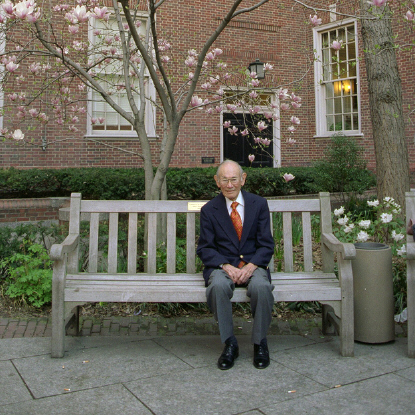By Erika Moritsugu and Krystal Ka‘ai
We often don’t hear his name in history books and in mainstream media. However, for us as Japanese Americans, his story is personal. For America, his story is revolutionary.
Today, we honor the legacy of the late Fred T. Korematsu, a true civil rights icon and hero who courageously opposed the incarceration of Japanese Americans during World War II.
After the attack on Pearl Harbor in 1941, 23-year-old Fred Korematsu defied President Franklin D. Roosevelt’s Executive Order 9066 that forcibly removed more than 120,000 people of Japanese descent from their homes to desolate incarceration camps throughout the country. They were forced to leave everything behind and denied basic civil liberties simply because of their ethnicity. And despite claims that this protected national security, we know now that U.S. intelligence agencies knew at the time Japanese Americans posed no threat to the country during World War II.
Fred Korematsu went into hiding in Oakland, California and was arrested and convicted of violating the federal order. He sought justice through our legal system, but he lost appeals to overturn his conviction again and again, including in the infamous Korematsu v. United States case in which the Supreme Court upheld the constitutionality of President Roosevelt’s Executive Order. Despite these setbacks, Mr. Korematsu never wavered in his pursuit of justice.
Decades later in 1976, President Gerald Ford formally terminated Executive Order 9066 and apologized for the wrongful incarceration of Japanese Americans during World War II. It was not until 1983 that Mr. Korematsu’s conviction was finally overturned by District Judge Marilyn Hall Patel.
For Fred Korematsu’s courageous pursuit of justice, President Bill Clinton awarded him the Presidential Medal of Freedom, the highest civilian honor. During the awards ceremony, President Clinton stated, “In the long history of our country’s constant search for justice, some names of ordinary citizens stand for millions of souls. Plessy, Brown, Parks. To that distinguished list, today we add the name of Fred Korematsu.”
Fred Korematsu did not set out to be a civil rights icon. He simply fought for what he believed was right. To honor his legacy, states such as California, Hawaii, Virginia, Florida, New York, and Arizona have passed bills to recognize Mr. Korematsu’s birthday as Fred Korematsu Day of Civil Liberties and the Constitution.
Today, on what would have been his 103rd birthday, we not only honor Fred Korematsu’s tremendous legacy, but also recommit ourselves to protecting the civil rights and civil liberties of all Americans.
This is especially important as acts of racism and hate continue to plague Asian American, Native Hawaiian, and Pacific Islander (AA and NHPI) communities across the country.
That’s why last spring, President Biden established a new White House AA and NHPI Senior Liaison position to coordinate a whole-of-government response to advance equity, justice, and opportunity for AA and NHPI communities. He also established the White House Initiative on Asian Americans, Native Hawaiians, and Pacific Islanders, reinstating and reinvigorate this historic Initiative that dates back to the Clinton Administration, and authorized the creation of the President’s Advisory Commission on AA and NHPIs.
In May 2021, the President also signed the COVID-19 Hate Crimes Act into law, bipartisan legislation that improves our national response to hate crimes and addresses the language and cultural barriers that many AA and NHPI communities and communities of color face in reporting hate crimes.
Our work spans the federal government and is in partnership with AA and NHPI community leaders across the country. Our federal officials on the ground in field offices, called our Regional Network, are connecting AA and NHPI communities to the federal government, and live and work in the communities we serve. We are working to dismantle the systemic inequities AA and NHPI communities have faced, from xenophobia and racism, to the lack of disaggregated data, to language barriers in accessing federal assistance. And we are also fighting every day to help our communities that have been hit hard by the pandemic with multiple crises – economic, health, and safety.
In our roles, we are proud to work alongside government officials, community leaders, and allies who are tirelessly fighting for civil rights.
Today and every day, let’s follow in the footsteps of civil rights leaders like Fred Korematsu by recommitting ourselves to building a more just and equitable America for all.
Erika Moritsugu is Deputy Assistant to the President and Asian American, Native Hawaiian, and Pacific Islander Senior Liaison. Krystal Ka‘ai is Executive Director of the White House Initiative and President’s Advisory Commission on Asian Americans, Native Hawaiians, and Pacific Islanders.
AsAmNews has Asian America in its heart. We’re an all-volunteer effort of dedicated staff and interns. Check out our new Instagram account. Go to our Twitter feed and Facebook page for more content. Please consider interning, joining our staff, or submitting a story, or making a contribution.


